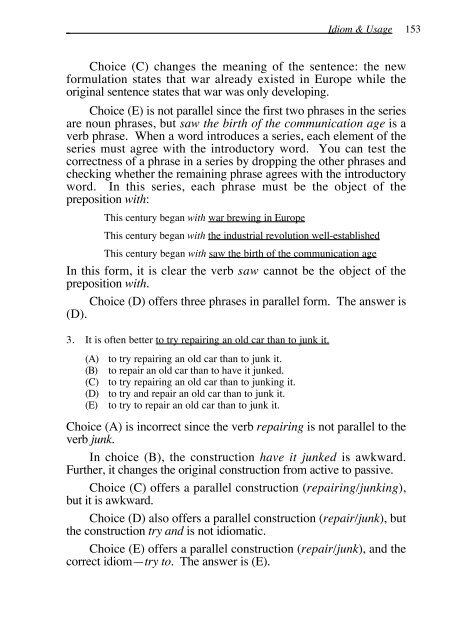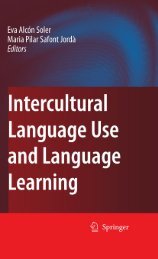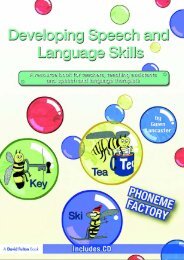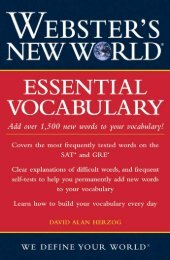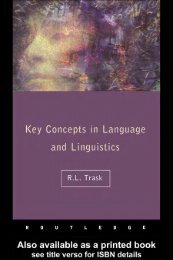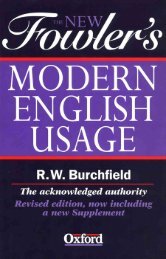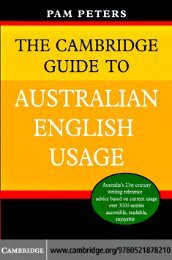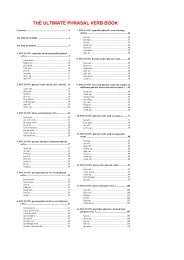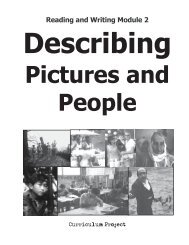Vocabulary 4000 - Noel's ESL eBook Library
Vocabulary 4000 - Noel's ESL eBook Library
Vocabulary 4000 - Noel's ESL eBook Library
You also want an ePaper? Increase the reach of your titles
YUMPU automatically turns print PDFs into web optimized ePapers that Google loves.
Idiom & Usage 153<br />
Choice (C) changes the meaning of the sentence: the new<br />
formulation states that war already existed in Europe while the<br />
original sentence states that war was only developing.<br />
Choice (E) is not parallel since the first two phrases in the series<br />
are noun phrases, but saw the birth of the communication age is a<br />
verb phrase. When a word introduces a series, each element of the<br />
series must agree with the introductory word. You can test the<br />
correctness of a phrase in a series by dropping the other phrases and<br />
checking whether the remaining phrase agrees with the introductory<br />
word. In this series, each phrase must be the object of the<br />
preposition with:<br />
This century began with war brewing in Europe<br />
This century began with the industrial revolution well-established<br />
This century began with saw the birth of the communication age<br />
In this form, it is clear the verb saw cannot be the object of the<br />
preposition with.<br />
Choice (D) offers three phrases in parallel form. The answer is<br />
(D).<br />
3. It is often better to try repairing an old car than to junk it.<br />
(A) to try repairing an old car than to junk it.<br />
(B) to repair an old car than to have it junked.<br />
(C) to try repairing an old car than to junking it.<br />
(D) to try and repair an old car than to junk it.<br />
(E) to try to repair an old car than to junk it.<br />
Choice (A) is incorrect since the verb repairing is not parallel to the<br />
verb junk.<br />
In choice (B), the construction have it junked is awkward.<br />
Further, it changes the original construction from active to passive.<br />
Choice (C) offers a parallel construction (repairing/junking),<br />
but it is awkward.<br />
Choice (D) also offers a parallel construction (repair/junk), but<br />
the construction try and is not idiomatic.<br />
Choice (E) offers a parallel construction (repair/junk), and the<br />
correct idiom—try to. The answer is (E).


